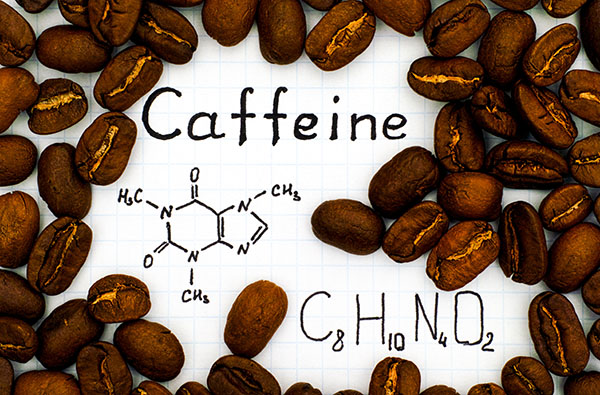Groundbreaking heart research reveals your morning coffee is a powerful protector against atrial fibrillation
11/11/2025 / By Cassie B.

- A groundbreaking study, the DECAF study, has found that coffee significantly reduces the risk of atrial fibrillation (AFib), a common and dangerous heart rhythm disorder.
- The study involved 200 patients with a history of AFib or atrial flutter, who were randomly assigned to either drink coffee daily or avoid it entirely for six months.
- The coffee-drinking group experienced a 39 percent lower risk of recurring AFib episodes compared to the group that abstained from coffee.
- Coffee’s protective effects are attributed to its ability to increase physical activity and reduce blood pressure, along with its anti-inflammatory properties.
- The study challenges the long-standing advice to avoid coffee for heart health and suggests that coffee is not only safe but likely protective for those with AFib.
For decades, the medical establishment has issued a stern warning to heart patients: avoid coffee. That longstanding piece of health dogma has now been shattered by groundbreaking new research that proves the exact opposite. A rigorous clinical trial has found that drinking coffee significantly reduces the risk of a common and dangerous heart rhythm disorder, turning conventional wisdom on its head and liberating coffee lovers from unnecessary fear.
This revolutionary study, known as the DECAF study, was conducted by researchers from UC San Francisco and the University of Adelaide. It represents the first randomized clinical trial to directly test the relationship between caffeinated coffee and atrial fibrillation. The trial involved 200 patients with a history of AFib or a related condition called atrial flutter, all of whom were regular coffee drinkers.
For six months, participants were randomly assigned to one of two groups. One group was instructed to drink at least one cup of caffeinated coffee or an espresso shot daily. The other group was told to completely avoid coffee and all other caffeinated beverages. The results, published in JAMA, were unequivocal.
The group that consumed coffee experienced a 39 percent lower risk of recurring AFib episodes. The data showed that 47 percent of the coffee drinkers had a recurrence, compared to 64 percent of those who abstained. This provides powerful, evidence-based proof that coffee is not the enemy it was long made out to be.
Dr. Christopher X. Wong, the first author of the research from UCSF and the Royal Adelaide Hospital, summarized the findings. “The results were astounding,” Wong said. “Doctors have always recommended that patients with problematic AFib minimize their coffee intake, but this trial suggests that coffee is not only safe but likely to be protective.”
Why coffee helps the heart
The senior author of the study, Dr. Gregory M. Marcus, an electrophysiologist at UCSF Health, explained the potential mechanisms behind coffee’s protective effects. “Coffee increases physical activity which is known to reduce atrial fibrillation,” Marcus stated. He added that “caffeine is also a diuretic, which could potentially reduce blood pressure and in turn lessen AFib risk. Several other ingredients in coffee also have anti-inflammatory properties that could have positive effects.”
This research fundamentally challenges the standard advice given to millions. For years, patients were told to shun caffeine out of fear it would increase heart rate and blood pressure, potentially triggering dangerous episodes. This study flips that narrative, suggesting that the natural compounds in coffee work in harmony with the body to support heart health.
The implications are massive for public health. Atrial fibrillation affects more than 10 million adults in the United States and is a cause of stroke. The condition causes the heart to beat rapidly and irregularly, and its prevalence has been climbing due to aging populations and rising obesity rates.
A paradigm shift in patient care
This is not simply an isolated finding. It builds upon previous observational studies that hinted at a connection between coffee consumption and better heart health. The DECAF study, however, provides the gold standard of evidence: a randomized, controlled trial to establish a cause-and-effect relationship.
The study authors noted a practical benefit. Those who drank coffee may have naturally replaced less healthy beverages, such as sugary sodas, with their daily cup. This substitution alone could contribute to better overall metabolic health, creating a positive ripple effect.
While the news is liberating for most, the researchers acknowledge that individual responses can vary. “It is reasonable for health care professionals to let their AFib patients consider experimenting with naturally caffeinated substances that they may enjoy, such as caffeinated tea and coffee,” Marcus advised. “However, some people may still find that caffeine or caffeinated coffee triggers or worsens their AFib.”
So the next time you savor that morning brew, you may be able to do so with a new sense of confidence. This latest research is a powerful reminder that real science is a process of discovery, often correcting the errors of the past. That simple, beloved cup of coffee is not a vice to be feared, but a complex natural substance that, for many people, is a safe and potent ally in the fight for long-term health and vitality.
Sources for this article include:
Submit a correction >>
Tagged Under:
AFib, atrial fibrillation, coffee, food cures, food is medicine, food science, grocery cures, health science, heart health, natural cures, natural health, natural medicine, Naturopathy, organics, real investigations, remedies, research
This article may contain statements that reflect the opinion of the author





















